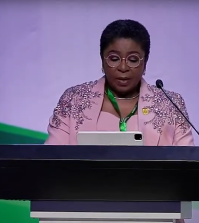Former UK diplomatic chief warns of declining influence overseas

The UK’s global influence is in decline, the former head of the country’s foreign office has argued – with Brexit and an over-controlling Number 10 at the heart of the problem.
In an opinion piece published by the Financial Times, former Foreign and Commonwealth Office (FCO) permanent under-secretary Simon Fraser – who led the FCO 2010-15, and is now vice chair of international affairs think tank Chatham House – wrote: “The claim that leaving the EU would open a highway to British global influence was always hollow. Since 2016, the UK’s influence has declined; our forces are barely present in international theatres of conflict and, as recent days have again shown, the Brexit soap opera undermines our diplomacy and soft power”. His last comment is a reference to the government’s bid to introduce legislation undermining the EU Withdrawal Agreement, which last week prompted the resignation of the head of the Government Legal Service.
Fraser argues that failures in Iraq and Afghanistan curbed the UK’s appetite for intervention, while the Brexit referendum and Donald Trump’s presidency have “upended the European and Atlantic pillars” of the UK’s strategy. Meanwhile, the UK has been “outflanked by Russian opportunism” and is “confused” about the balance of security risks and economic opportunities presented by China, he writes. Many of Fraser’s views align with those of Sir Suma Chakrabarti, the former head of the UK’s Department for International Development and development bank the EBRD, who told GGF last month that “on many of the big issues, the UK is no longer actually a player.”
Forming a ‘credible and distinctive role’
Fraser argues that the UK needs more clarity on its priorities, relationships and resources, and says current policy is incoherent: aligned with EU positions on some issues – such as Iran and climate change – but with the US, Australia, Canada and New Zealand on others, including China and Hong Kong. The country’s reluctance to negotiate a foreign policy relationship with the EU “is an error” that risks further diminishing its global influence, he adds.
The former diplomatic chief also warns that as Downing Street has disempowered ministries, Whitehall’s foreign policy machinery has become over-centralised. Delivery for foreign policy should, in his opinion, be led by a reformed and renamed Department for International Affairs given leadership on foreign, development and trade policy, oversees external intelligence and works closely with the Ministry of Defence.
With the government working on a review of security, defence, development and foreign policies – due to be published in the autumn – Fraser urges it to focus on avoiding conflict between the US and China; maintaining global prosperity; preventing nuclear proliferation; addressing climate change; and shoring up a multilateral system of international rules. “The route to our national goals will lie, as before, through leveraging relationships with others,” he writes, citing key relationships with Europe, the US and, tentatively, China.
Mixed views on merger
Like Fraser, Chakrabarti – a former Department for International Development (DfID) and Ministry of Justice permanent secretary – is concerned about the centralisation of foreign policy. “UK foreign policy has been subcontracted to Number 10 Downing Street – that’s been going on for a long time,” he told GGF. And he too warned of the UK’s declining influence: at one point, he said, the UK played a key role in managing Europe’s relationship with Ukraine – but nowadays “the UK is immaterial in the discussion about Ukraine’s future. France and Germany have taken that away; they didn’t invite the UK in. And we were so taken up with Brexit we didn’t take part.” He pointed to similar disengagements in sub-Saharan Africa – where the UK has the opportunity to build on existing strong relationships – and former Yugoslavia, where Britain “spilled blood and spent its treasure in both Bosnia and Kosovo” but is allowing the “western Balkans to become an EU play.”
Fraser and Chakrabarti’s comments follow the government’s announcement in June that it would merge DfID, which managed the UK’s overseas aid, and the FCO. The two departments were officially merged on 2 September. Opponents, including two former international development secretaries, argued that the move would hurt the UK’s global standing and its efforts to reduce poverty.
Chakrabarti told GGF that the merger could help support more coordinated policymaking in areas such as climate change and modern slavery, but said his experience had taught him that mergers and acquisitions of departments don’t resolve existing tensions between UK goals. “All you’re doing is internalising the conflict of objectives,” he said.
Withdrawal agreement fallout
In his FT article, Fraser concludes that only with clarity on priorities, relationships and resources can the UK “craft the coherent foreign policy post-Brexit Britain needs. The task will be easier if the UK and EU reach a deal in December”.
The publication last week of the Internal Market Bill, which includes an attempt by the UK government to introduce domestic legislation overriding aspects of the Brexit withdrawal agreement it signed in January relating to Northern Ireland, may make reaching a deal more difficult. The move would break international law and has been condemned by a long and growing list of influential people, including top former civil servants, EU politicians, and many of those in the government’s own party – including Brexit-supporting peers and the former prime ministers Theresa May and John Major.
“How can the government reassure future international partners that the UK can be trusted to abide by the legal obligations of the agreements it signs?” May said. Major and former Labour PM Tony Blair have urged MPs to reject the legislation, arguing that it imperils the Irish peace process, trade negotiations and the UK’s integrity.
About Mia Hunt
Mia has been editor of globalgovernmentforum.com since 2019. She has 15 years’ experience as a journalist and editor and specialises in writing for civil and public servants worldwide, including covering sustainability policy and related issues. She has led the Global Government Women’s Network since it launched in 2023. Previously, she covered commercial property having been market reports and supplements editor at Property Week and deputy editor at Retail Destination. She graduated from Kingston University London with a first-class honours degree in journalism and was part of the team that produced The River newspaper, which won Publication of the Year at the Guardian Student Media Awards in 2010.



Related Posts
Latest News
-
How governments are using mobile IDs to transform services for citizens
As governments around the world look to deliver digitally-enabled services,...
- Posted July 14, 2023
- 1
-
Call to rewire UK government Spending Review process to create ‘always on’ approach
A radical overhaul of how the UK government runs its...
- Posted July 1, 2025
- 0
-
How’s the UK attempt to reach net zero going? There’s good news and bad news
Each year, the Climate Change Committee – the UK’s independent...
- Posted July 1, 2025
- 0
-
US Office of Personnel Management sets out federal workforce reforms to build ‘high-performance culture’
The US government has set out the pillars of a...
- Posted June 26, 2025
- 0
-
‘Business as usual is no longer acceptable’: Nigeria’s civil service head sets out how to rejuvenate, innovate and accelerate
The head of the civil service of the federation of...
- Posted June 26, 2025
- 0
-
UK developing data tool to track cloud spend across government
The UK’s Government Digital Service (GDS) is developing a ‘cloud...
- Posted June 26, 2025
- 0
-
Majority of citizens support development of global climate policy, study finds
More than 80% of citizens across 20 countries think public...
- Posted June 25, 2025
- 0
-
Nigeria hosts first-ever International Civil Service Conference in Abuja
In a move to catalyse transformation in the public sector,...
- Posted June 25, 2025
- 0
Partner content



Related events
















